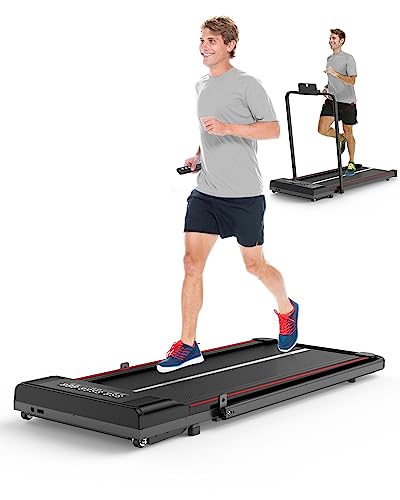A Glimpse In Treadmills’s Secrets Of Treadmills
Understanding Treadmills: Types, Benefits, and Considerations
Treadmills have actually ended up being an essential part of physical fitness culture, providing a hassle-free option for people seeking to improve their cardiovascular physical fitness without the need for outdoor areas or weather condition considerations. With a selection of functions and models available, possible purchasers must be knowledgeable to make the best decision. This article aims to offer a comprehensive overview of treadmills, consisting of the different types, benefits, and aspects to think about when purchasing one.
The Different Types of Treadmills
1. Handbook Treadmills
Manual treadmills are powered by the user rather than an electric motor. They require no electrical energy and typically include an easy design with less moving parts.
Benefits of Manual Treadmills:
- Cost-effective
- Portable and light-weight
- No dependence on electricity
Downsides:
- Limited functions
- Typically do not have slope options
2. Motorized Treadmills
Motorized treadmills are the most typical type, powered by an electric motor. They generally offer different features such as programmable workout regimens, adjustable slopes, and greater weight capabilities.
Advantages of Motorized Treadmills:
- Smooth operation and constant traction
- Flexible with innovative functions for varied workouts
- Alternatives for incline and decrease settings
Drawbacks:
- Higher cost compared to manual treadmills
- Require electrical power and might increase electric expenses
3. Folding Treadmills
Folding treadmills are designed for simple storage, making them perfect for those with limited space.
Benefits of Folding Treadmills:
- Space-saving design
- Easy to transfer and keep
- Appropriate for home use where area is at a premium
Downsides:
- Typically may have a smaller sized running surface
- Weight limitation may be lower than non-folding models
4. Industrial Treadmills
These treadmills are constructed for toughness and efficiency, usually discovered in gyms and fitness centers. They are created for high use rates and come with sophisticated functions.
Benefits of Commercial Treadmills:
- Extremely resilient and often supported by warranties
- Complete series of features, including advanced training programs
- Appropriate for heavy-duty exercises
Drawbacks:
- Higher rate point
- May be too big or heavy for home use
| Type of Treadmill | Source of power | Typical Features | Suitable For |
|---|---|---|---|
| Manual Treadmill | None | Basic exercise metrics | Minimalist users |
| Motorized Treadmill | Electric | Programmable exercises, incline options | General fitness enthusiasts |
| Folding Treadmill | Electric | Space-saving style | Home users with limited area |
| Business Treadmill | Electric | Advanced training programs | Gym centers |
Advantages of Using a Treadmill
Treadmills provide many benefits for individuals seeking to boost their physical fitness levels or preserve an athletic regimen.
1. Convenience
Owning a treadmill allows users to exercise at their own schedule, removing reliance on climate condition. It supplies flexibility, as workouts can take place day or night.
2. Personalized Workouts
Numerous modern-day treadmills feature customizable programs to accommodate beginners and experienced athletes. Users can adjust speed, slope, and workout period to maximize the effectiveness of their sessions.
3. Tracking Progress
Most treadmills come equipped with digital screens that tape-record important statistics such as distance, speed, calories burned, and heart rate. Monitoring this data helps users track their fitness progress in time.
4. Minimized Impact
Treadmills often supply a cushioned surface area that can minimize joint impact compared to operating on difficult outdoor surfaces, making them an appropriate option for individuals with joint issues or those recovering from injuries.
5. Range of Workouts
Users can engage in various workouts on a treadmill, from walking and running to interval training and speed work. Some machines even use built-in courses that replicate outside terrains.
Considerations When Buying a Treadmill
When buying a treadmill, individuals need to think about numerous aspects to guarantee they make an informed decision.
1. Area Requirements
- Step Available Space: Before choosing a design, procedure where the treadmill will be put to ensure it fits easily.
- Consider Folding Options: If area is a concern, think about purchasing a folding treadmill for practical storage.
2. User Weight and Height
- Inspect the weight capacity of the treadmill to accommodate its designated users.
- Guarantee that the belt length appropriates for users’ strides, particularly for taller people.
3. Functions and Technology
- Examine whether innovative features like heart rate monitors, Bluetooth connectivity, and built-in training programs are very important for the intended user.
- Examine easy to use interfaces and product evaluations on display screen quality.
4. Guarantee and Customer Support
- Evaluation service warranty choices to understand what is covered and for for how long. Some models may use prolonged service warranties or guarantees for parts.
- Assess the brand name’s track record for consumer assistance in case of malfunctions or concerns.
5. Cost Range
- Consider your budget plan but keep in mind that more affordable designs might lack functions, durability, or guarantee support.
- Explore funding options if buying a higher-end model.
Frequently asked questions About Treadmills
1. What is the typical life-span of a treadmill?
Usually, a high-quality treadmill can last between 7 to 12 years, depending on use, maintenance, and build quality.
2. What is the Best Home Treadmills Uk treadmill brand?
Popular brands consist of NordicTrack, Sole Fitness, Precor, and LifeSpan, each known for their quality and customer satisfaction.
3. Can I use a treadmill for walking?
Yes, treadmills are perfect for walking, running, or running, making them versatile for users of all physical fitness levels.
4. How frequently should I service my treadmill?
Regular upkeep is normally suggested every 6 months to guarantee optimal efficiency and durability.

5. Is it okay to run on a treadmill every day?
While working on a treadmill daily is acceptable for some, it’s smart to incorporate day of rest or alternate exercises to avoid possible overuse injuries.
In conclusion, treadmills remain a popular choice for fitness lovers trying to find versatility and customizability in their exercise routines. By comprehending the different types offered, their benefits, and essential elements to consider throughout purchase, users can make an informed decision that lines up with their fitness objectives and lifestyles.


